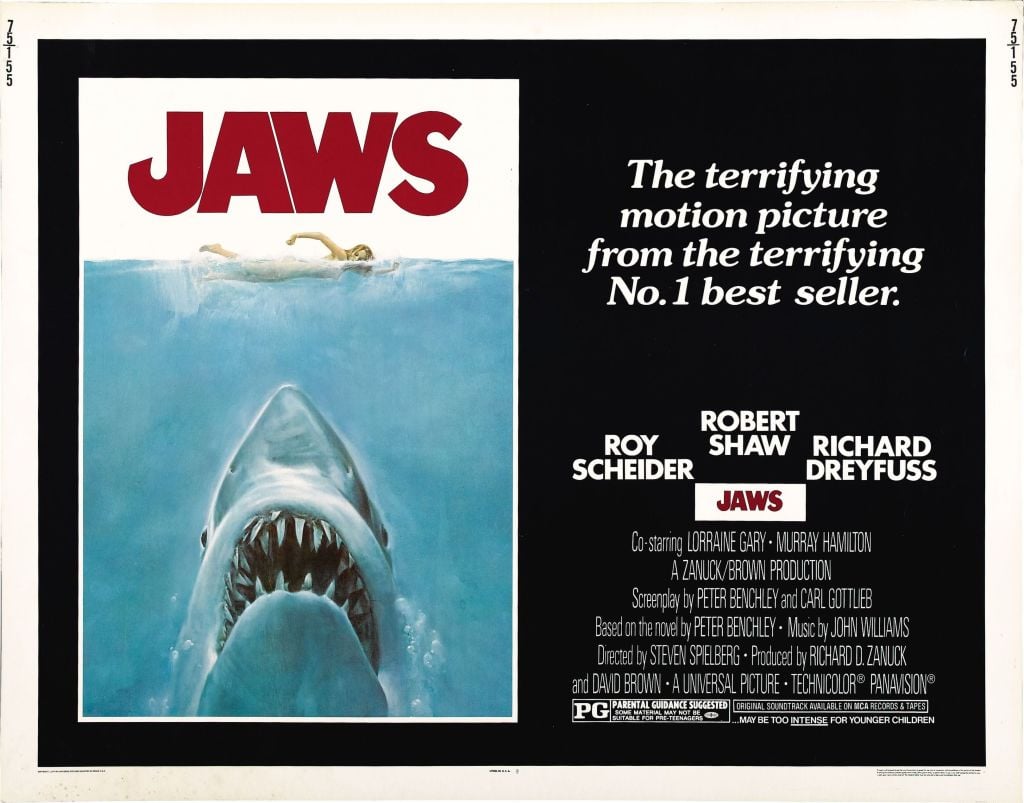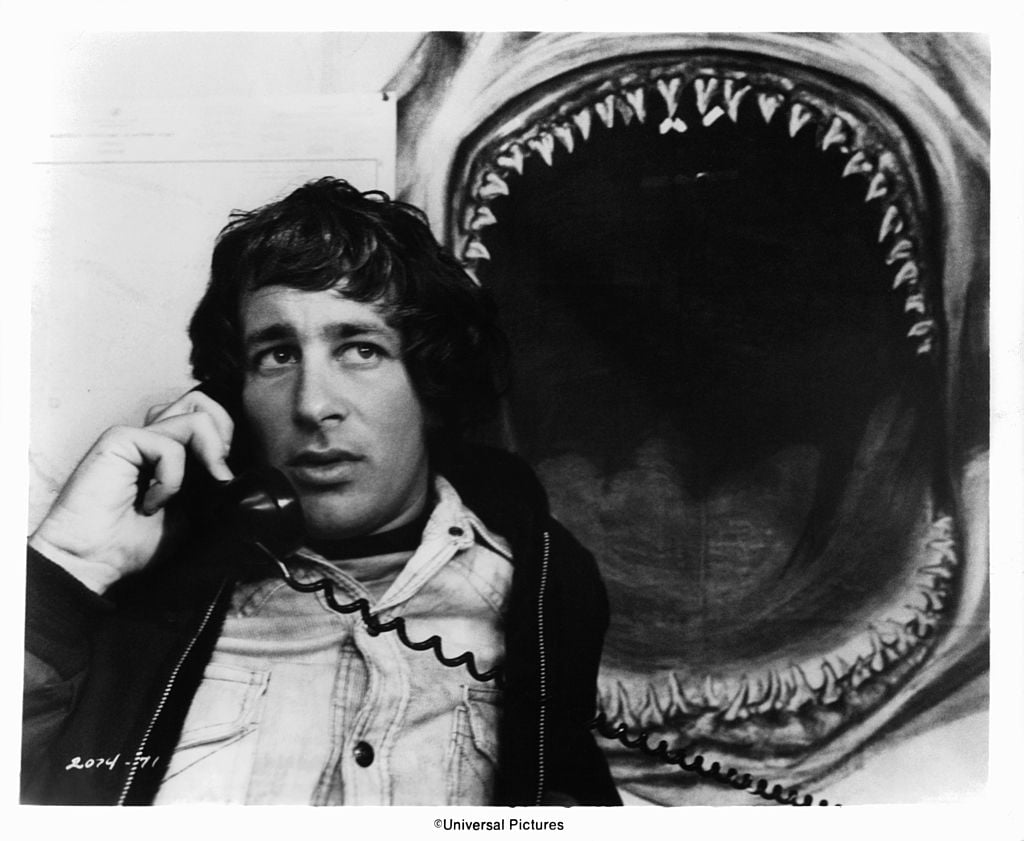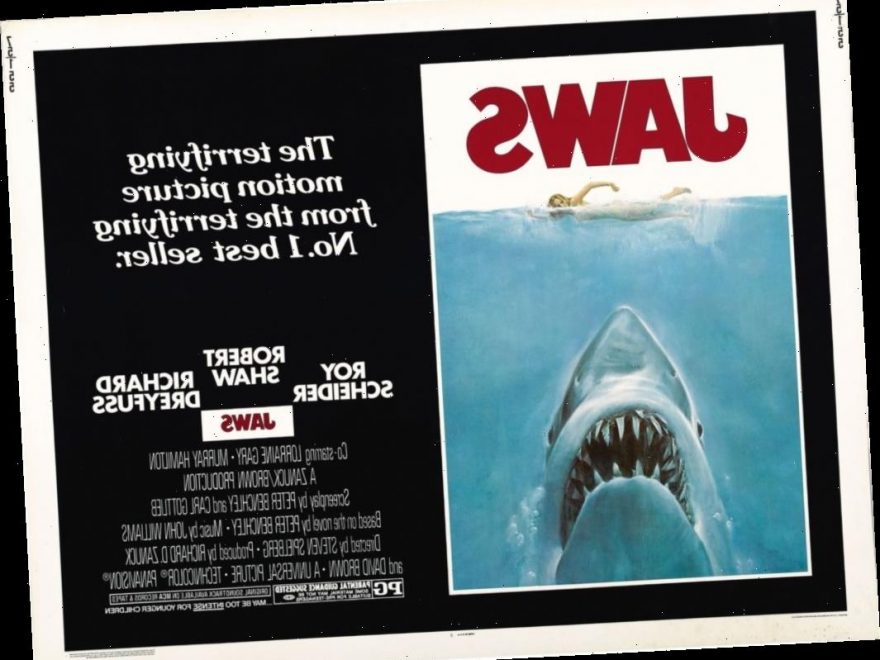Jaws, the film that gave birth to summer blockbusters, is marking its 45th anniversary this year.
Releasing on June 20, 1975, between the film’s sharp-toothed star and its unforgettable music, nobody was going anywhere near the water.
The film was a big hit for sure, but director Steven Spielberg experienced trauma from filming that took him years to overcome.

RELATED: ‘Jaws’ Actress Who Played Mrs. Kintner Dies From COVID-19
The star of the film, Bruce the shark
Thanks to not one, but three, mechanical sharks named Bruce, the film set box office records at the time. It also began a tradition of epic films released to wow audiences and kick off the summer season.
RELATED: What Are Steven Spielberg’s Best Movies of All Time?
Special effects artist Robert Mattey was commissioned to work on the Bruces. It turned out to be a much bigger challenge than anyone had envisioned. Filming on the ocean was a first for the crew and the saltwater was eating away at Bruce’s motor. Plus, Bruce sank to the bottom of the ocean when filming began. The mechanical shark had to be repeatedly, almost daily, rehauled. It was a nightmare situation for the crew.
While the effects crew figured out how to make Bruce work, Spielberg had to make the most of filming time.
“I had no choice but to figure out how to tell the story without the shark,” Mental Floss reported Spielberg as saying. “So I just went back to Alfred Hitchcock: ‘What would Hitchcock do in a situation like this?’ … It’s what we don’t see which is truly frightening.”
‘Jaws’ co-star Richard Dreyfuss thought the movie would flop
Dreyfuss, who played shark specialist, Matt Hooper, in the film, didn’t see a bright future for the film.

RELATED: What Is Steven Spielberg’s Net Worth?
“Everyone thought that they had struck gold, and I said, ‘What are you talking about? It’s just a little movie,” Dreyfuss told Yahoo Entertainment in June 2020. “So when the film released, I found myself going back to the talk shows and saying, ‘I’m the guy who didn’t believe in it.’ “
The film terrified audiences and gave Steven Spielberg PTSD
While Jaws launched Spielberg’s career, he described the after-effects of filming the blockbuster as nothing less than post-traumatic stress disorder (PTSD). The renowned director, now 73, revealed to EW that he returned to the actual Orca boat shortly after filming wrapped on the movie. He wanted to force himself to deal with what his mind was clearly still processing.

“I used to come out for a couple of years after I made the movie to get over my PTSD,” Spielberg recalled. “I would work through my own trauma, because it was traumatic [and] would just sit in that boat alone for hours, just working through, and I would shake. My hands would shake.”
Clearly, Jaws did an excellent job of traumatizing nearly everyone that crossed its path.
RELATED: Could the Movie ‘Jaws’ Hold a Clue in Solving One of America’s Famous Cold Cases?
Source: Read Full Article
